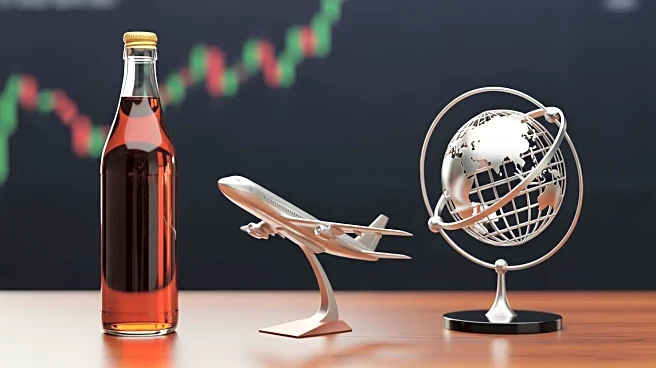Rapid Read • 8 min read
President Trump has imposed a 50% tariff on Brazilian imports, one of the highest rates globally, as part of a broader strategy to address what he describes as countries 'looting' the United States through trade. This move, announced on April 2nd and implemented on August 7th, targets Brazil despite the country importing more from the U.S. than it exports. The tariffs are part of a series of trade measures aimed at rebalancing trade deficits and protecting American industries. However, the impact on Brazil appears to be less severe than initially anticipated, as the country has managed to avoid the worst economic repercussions for now.
AD
The imposition of high tariffs on Brazilian goods by President Trump highlights ongoing tensions in international trade relations, particularly between the U.S. and its trading partners. While the tariffs are intended to protect American industries and reduce trade deficits, they also risk straining diplomatic and economic ties with Brazil, a significant trading partner. The broader implications could affect global trade dynamics, potentially leading to retaliatory measures or shifts in trade alliances. For U.S. industries reliant on Brazilian imports, these tariffs could lead to increased costs and supply chain disruptions.
The future of U.S.-Brazil trade relations remains uncertain as both countries navigate the implications of these tariffs. Potential responses from Brazil could include seeking alternative markets or negotiating trade agreements with other nations to mitigate the impact. Additionally, the U.S. may face pressure from domestic industries affected by increased import costs to reconsider or adjust the tariff rates. The situation warrants close monitoring as it could influence broader trade policies and international economic strategies.
The tariffs on Brazil may also have deeper geopolitical implications, as they could influence Brazil's economic alliances and its role in regional trade blocs. The move could prompt Brazil to strengthen ties with other major economies, potentially altering the balance of trade power in the Americas. Furthermore, the tariffs raise questions about the effectiveness of such measures in achieving long-term economic goals without causing collateral damage to international relations.
AD
More Stories You Might Enjoy











